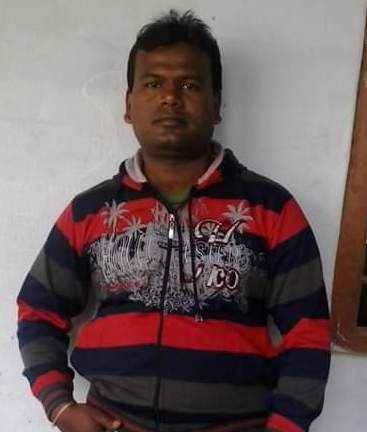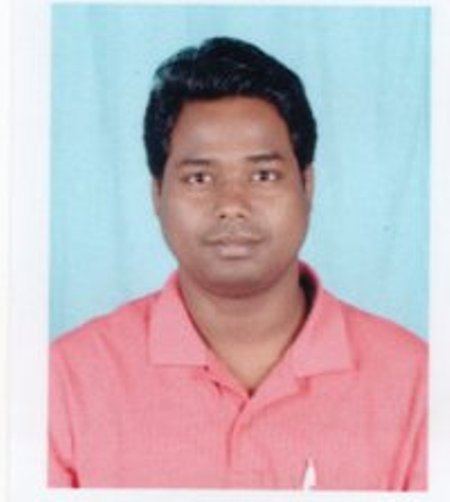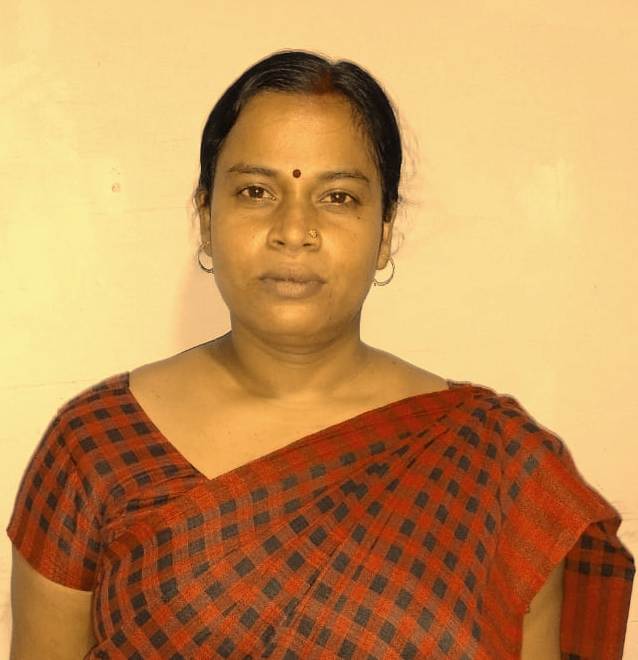Political Science
- Introduction
- Curriculum
- Teaching & Learning
- Learning Resources
- E-Learning initiatives
- Seminar, Conferences, Webinar and Workshops
- Notices & Events
- Contact Information
History of the Department
The department of Political Science of Dr. Meghnad Saha College was established in 2003 as a general course, and honours course was established in 2006 in UG level. Presently the department has 1(one) Sanctioned faculty members and 02(Two) West Bengal State Aided College Teachers. It offers B.A (Pass/general) and B.A (honours) in Political Science. It encourages a comprehensive study of the field of Political Science, keeping especially Indian reality in focus. Our general focus has been supplemented by a growing emphasis on the need to combine theory with ethnographic and archival work. The department has made pioneering contributions to promoting the study of Political Science.
Vision and Mission
Vision
- To empower the youth, especially belonging to marginalized sections of the society, through the quality education and make them good human being as well as responsible citizen of the society.
Mission
- Expose the students especially the under-privileged ones to Varity of activities aimed at their overall development.
- Motivate them towards community service.
- Inspire the young minds to develop the habited of thinking of achieving creative excellence.
- Student gain abilities to critically assesses contemporary political events and identify practical solutions to the social problem.
Honours Program
Objectives of Honours Program
- Political Theory helps us better understand the concepts that have shaped our politics, including freedom, equality, individuality, democracy and justice. Importantly, Political Theory is the part of Political Science that explores what a better political world would look like and how we can create it.
- Students will provide theoretical as well as practical knowledge on management of public organizations, including personnel and financial management that are necessary for public officials. Students will show capacity to become an ethical and effective leader with appropriate communication skills.
- The main objective of the present course Indian Political System: Institutional and Political Dynamics is to present a systematic analysis of all the major dimensions of Indian Political System. What better way can there be to get introduced to political system than through the politics of country?
- The most importance objective of comparative government are mentioned below:❖ Stress upon the study of political institutions of various countries. ❖ Focus on the study of major constitutions of the world. ❖ Emphasis upon the study of powers and functions of various political institutions working in different countries.
- This will include gaining an understanding of the nation’s political institutions, political culture, and political ideologies, as well as how public policy is decided upon and implemented.
- Students will come to understand that there are various types of political systems around the world,
- Students will learn about the concepts, theories, and data needed to comprehend the interactions of nations that constitute international relations, and the nature of such global institutions as the United Nations, regional alliances, and international law.
Syllabus for the Honours Program
*For CBCS System Students (H) CLICK HERE
*For CBCS System Students (General) CLICK HERE
COURSE OUTCOME FOR 1+1+1 STUDENTS
Semester-I
DC-1: Constitutional Government and Democracy in India
1. Outlining the basic values and philosophy of Indian Constitution as expressed in the Preamble 2. Studying Fundamental rights, duties and Directive Principles of State Policy. 3. Discussing making of Public Policy Making and methods of Implementation Examining Indian federalism through Centre-state relations 4. Evaluating the structures of government at the National level 5. Evaluating the structures of government at the State level. 6. Evaluating the structures of local self Government in India 7. Assessing Judicial Activism in India with particular reference to Supreme Court.
DC-2: Political process in India
1. Examine the concept of party system in India 2. Examine the concept of Coalition politics in India 3. Examining social stratification through the index of class, caste and elite. 5. Relating Gender and Politics 6. Creating awareness the meaning of secularism 7. Evaluating the process of Constitutional Amendment 8. Studying the Election Commission and electoral process in India.
Semester-II
DC-3: Understanding the political theory
1. Analyzing what is Politics and explaining the approaches to the Study of Political Science – Normative, Behavioral, Post Behavioral, Feminist. 2. Explaining the Concept of State Sovereignty: Monistic and Pluralistic Theories, and relation between Sovereignty and Globalization. 3. Understanding basic concepts of Democracy and its History.
DC-4: Political theory-Concepts and debates
1. Understanding basic concepts of Liberty, Equality, Rights, Law and Justice. 2. Assessing the concepts of Justices by Barkers and Rawls. 3. Explaining Dialectical Materialism and Historical Materialism with special reference to relationship between base and superstructure. 4. Analyzing the theory of class and class struggle. 5. Describing the Marxist Approach to politics. 6. Explaining Marxian theory of Revolution. 7. Evaluating the major debates in Marxism: Lenin- Rosa Luxemburg debate on Political party.
Semester-III
DC-5: Understanding comparative Government and Politics
1. Tracing the evolution of Comparative Politics as a discipline and drawing a Distinction between Comparative Politics and Comparative Government 2. Tracing the nature and scope of Comparative Politics 3. Critically analyzing the features of a liberal democratic and socialist political system With focus on UK, USA.NIGERIA.CHINA 4. Evaluating the concept and meaning of Globalization and Colonialism.
DC-6: Processes and institution in comparative perspectives
1. Evaluating the concept and meaning of Political Culture and new Institutionalism 2. Examine the concept of Election System 3. Examine the concept Nation State 4. Evaluating the concept and meaning Federation and Confederation -Debates.
DC-7: Western Political Thoughts
1. Providing an insight into the dominant features of Ancient Western Political Thought: Ancient Greek political thought with focus on Aristotle and Plato 2. Examining the features of Medieval Political Thought. 3. Evaluating the Renaissance; political thought of Reformation; and Machiavelli. 4. Critically examining Hobbes and his idea of political thought 5. The founder of the science of materialist politics; Locke as the founder of Liberalism With focus on his views on natural rights, property and consent 6. Examining the Marxist and his idea of Class and Class struggle, alienation theory.
Semester-IV
DC-8: Indian Political Thoughts
1. Tracing the evolution Brahmanism and Shamanic and Islamic 2. Analyzing the concept of Santiparva and Rajadharma 3. Assessing Manu and Social Law 4. Discuss the Kautilya theory and state 5. Explain the state theory of Aggannasutta, Brani,AbulFazal and Kabir 6. Assessing Rammohan Ray and his idea of Right and Liberalism 7. Assessing the idea of Indian political thought like, Gandhi. Ambedkar, Vivekananda, Tagore, Iqbal ,Savarkar, Nehru and Lohia.
DC-9: Understanding Political Sociology
1. Inter-relation between society, state and politics 2. Studying the concepts of Power, Authority and Legitimacy in the context o society. 3. Examining social stratification through the index of class, caste and elite. 4. Evaluating the impact of Religion on society. 5. Relating Gender and Politics 6. Creating awareness among students about Nationalism and State building processes In Western Europe and third world 7. Establishing State –society interrelationship.
DC-10: Politics and Society
1. Classifying the different types of Political systems. 2. Discussing the approaches to the study of Political Culture. Evaluating the different Agents of Political Socialization and their interrelationships 3. Evaluating the concept and types of Political Participation 4. Studying groups in politics: political parties and pressure groups. 5. Evaluating the concept of Political Development and Social Change- Role of Tradition and Modernity.
Semester-V
DC-11: Perspectives on International Relations and World History
1. Explaining scope and subject matter of International Relations as an autonomous Academic discipline 2. Evaluating the concept of Pre-Westphalia and post West Phalia 3. Examine the concept of Classical Realism and Neo- Liberalism 4. Evaluating the concept of Marist Approach and Feminist Perspective 5. Describing the World War –I and II 6. Discuss the concept Cold War and Post Cold War.
DC-12: Global Politics
1. Examine the concept of Global Governance and human security 2. Concept of International Terrorism, state as an actor and non-state actor 3. Examine the global Economy with IMF 4. Explaining certain basic concepts like Globalization in contemporary world order. 5. Evaluating the working of UN and its organs; Peace keeping Function and Human Rights.
Semester-VI
DC-13: Perspectives on Public Administration
1. Explaining the nature, scope and evolution of Public Administration; Private and Public Administration 2. Analyzing the major Concepts in Public Administration 3. Tracing the Challenges in the discipline of Public Administration like New Public Administration (NPA); Comparative Public Administration (CPA) 4. Discussion the Scientific management theory .Human relation Theory and Decision Making theory.
DC-14: Public Policy and Administration in India
1. Discussing making of Public Policy Making and methods of Implementation 2. Meaning of Local Self Government 3. Evaluating the Budget Cycle of India 4. Welfare policy in India like: RTE, NHM, RFS, MGNREGA.
Generic Elective
- Objective of Generic Elective
- Introduce the student to idea of political theory.
- This course acquaints student with the constitutional design of the structures and institution.
- The course will also attempt to provide the students a comprehensive understanding on comparative politics.
- This course attempts to build an understanding of human rights among students through a study of specific issues in a comparative perspective.
- This course will have to student understanding the Rights, Liberty, Equality, and Justice.
- Syllabus for the Generic Elective
-
-
- Course outcome
- Students will be able to understand various approaches to Political theory and its critical and contemporary trends.
- They will be able to understand functioning of various governments.
- Have the capacity to compare and analyses political systems operating in different countries.
- Students will recognize the significance of local governance- both rural and urban.
- The students are given fundamental clarity about global governance.
-
a) Faculty Profile:
| JAYGOPAL BISWAS |  |
| ASSISTANT PROFESSOR & HOD and BURSAR | |
| M.A. IN POLITICAL SCIENCE | |

|
| DR. MD KAMAL HOSSAIN |  |
| Assistant Professor | |
| M.A.Ph.D | |

|
| Namita Das |  |
| SACT | |
| M.A. in Political Science | |

|
Students
Political Science Honours intake capacity of Current Year category wise
|
Intake |
UR |
OBC-A |
OBC-B |
SC |
ST |
PH |
TOTAL |
Gender equality |
|
|
30 |
06 |
05 |
14 |
04 |
01 |
60 |
|||
|
Enrolment in 2015-16 |
|
|
|
|
|
|
Male |
Female |
|
|
|
|
||||||||
| Enrolment in 2016-17 |
19 |
06 |
07 |
NIL |
NIL |
32 |
M=15 |
F=17 |
|
| Enrolment in 2017-18 |
23 |
11 |
13 |
NIL |
NIL |
47 |
M=25 |
F=22 |
|
| Enrolment in 2018-19 |
22 |
13 |
16 |
01 |
NIL |
52 |
M=27 |
F=25 |
|
| Enrolment in 2019-20 |
14 |
10 |
10 |
01 |
NIL |
37 |
M=15 |
F=22 |
|
Political Science general intake capacity category wise
|
UR |
OBC-A |
OBC-B |
SC |
ST |
PH |
TOTAL |
|
NA |
NA |
NA |
NA |
NA |
NA |
555 |
Enrolment and gender equality
|
Year |
Total |
Male |
Female |
|
2nd Semester Hons |
49 |
24 |
25 |
|
Part II Hons |
33 |
15 |
18 |
|
Part III Hons |
25 |
11 |
18 |
Teaching Methodology
-
-
- Internal assessment:
-
The department organizes regular internal assessment as per with the current CBCS syllabus and also various problem solving classes taken for their quality enhancement.
-
-
- Group Discussion :
-
Regular Group Discussion also organized for enhancement of their ability for leadership quality, speaking ability, public speaking ability, social skills.
-
-
- Quiz :
-
For enhancement of their competitive mind and increasing problem solving skills the department organizes quiz competition regularly.
-
-
- Participatory Learning :
-
The department organizes regularly Youth Parliament Competition, and participate Inter College District Level Competition as well as Divisional level. The youth Parliament is a programme in which group discussion and role-plying techniques can effectively be used.
-
-
-
- Strategies for slow learners: Special and extra classes are taken for the slow learner.
-
-
• The department has one dedicated ICT enabled classroom. • The department has a department library and students also uses the central library facility
• Faculties of the department use various online platforms for direct teaching, evaluation and resource sharing.
• Study materials also regularly uploaded in the college websites by the faculties of this department.
• N-LIST is extensively used by the faculty and the students of the department.
|
Sl No. |
Event |
Date |
Name of the Resource Persons |
Number of participants |
Theme |
Outcome |
|
|
1. |
Webinar |
10th July, 2020 |
Prof. Manas Chokroborty Senior Fellow(ICSSR) Emeritus Professor(UGC) Department Political Science North Bengal University Prof. Jyotiraj Pathak Associate Professor Department of Political Science Bodoland University, Assam Prof. Gopal Sharma Department of Political Science, Raiganj University |
120 |
“India and China bilateral relations: Major issues” |
Researcher as well as students share their knowledge through digital platform |
|
|
2. |
Special Lecture |
11th April, 2018 |
Prof. Ishani Naskar Department of Political Science, Rabindra Bharati University |
120 |
“Recent trends in Indian Politics: Issues and Challenges” |
Audience was informed about the scenario of Indian Politics |
|
|
3. |
Seminar |
28th March, 2019 |
Prof. Jyotiraj Pathak Associate Professor Department of Political Science Bodoland University, Assam Prof. Gopal Sharma Department of Political Science, Raiganj University |
160 |
“Emerging Trends in Indian Politics” |
Researcher as well as students share their knowledge |
|
Pol.Science_2019-12-05_Award-List_Sem-I_DC-II
Pol_Science_2019-01-29_Notice_Group Discussion
Pol.Science_2019-11-22_Award-List_Tutorial-Test_Sem-I_DC-I
Pol.Science_2019-11-22_Notice_Tutorial_Test_Sem-I_DC-II
Email: polscdepartmentitahar@gmail.com
WhatsApp Group Link
Semester-1: CLICK HERE
Semester-2: CLICK HERE
Part-2: CLICK HERE
Facebook Page: CLICK HERE

















